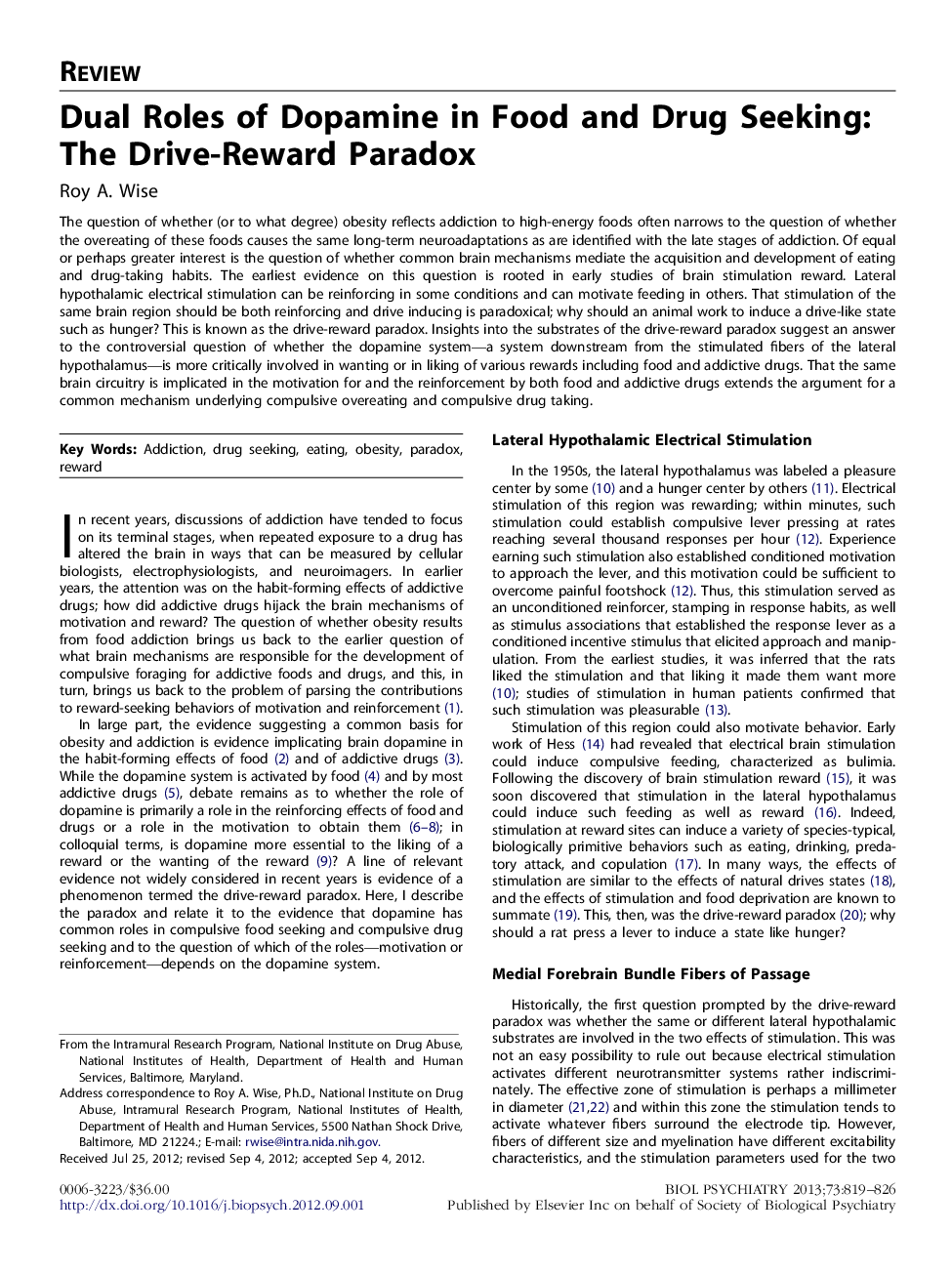| Article ID | Journal | Published Year | Pages | File Type |
|---|---|---|---|---|
| 6227588 | Biological Psychiatry | 2013 | 8 Pages |
The question of whether (or to what degree) obesity reflects addiction to high-energy foods often narrows to the question of whether the overeating of these foods causes the same long-term neuroadaptations as are identified with the late stages of addiction. Of equal or perhaps greater interest is the question of whether common brain mechanisms mediate the acquisition and development of eating and drug-taking habits. The earliest evidence on this question is rooted in early studies of brain stimulation reward. Lateral hypothalamic electrical stimulation can be reinforcing in some conditions and can motivate feeding in others. That stimulation of the same brain region should be both reinforcing and drive inducing is paradoxical; why should an animal work to induce a drive-like state such as hunger? This is known as the drive-reward paradox. Insights into the substrates of the drive-reward paradox suggest an answer to the controversial question of whether the dopamine system-a system downstream from the stimulated fibers of the lateral hypothalamus-is more critically involved in wanting or in liking of various rewards including food and addictive drugs. That the same brain circuitry is implicated in the motivation for and the reinforcement by both food and addictive drugs extends the argument for a common mechanism underlying compulsive overeating and compulsive drug taking.
